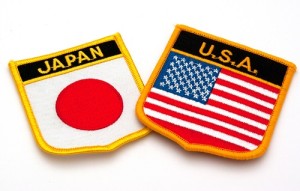Korematsu v. United States: National Security Outweighs Individual Rights
Historical
In Korematsu v. United States, 323 U.S. 214 (1944), the U.S. Supreme Court upheld an Executive Order that banned American citizens of Japanese descent from certain areas in the name of national security.
The case was just one of several lawsuits challenging the constitutionality of internment camps during World War II.Korematsu’s conviction was overturned on November 10, 1983 after the Court found that the government knowingly used false information in 1944 to convict him. Acting Solicitor general Neal Katyal filed official notice conceding “error” on May 20, 2011.
The Facts of Korematsu v. United States
In the early days of World War II, President Franklin Roosevelt issued Executive Order 9066, which authorized the military to ban all persons of Japanese ancestry, regardless of citizenship, from areas of the West Coast deemed important to national security. The Japanese Americans that were forced to leave their homes were required to stay in internment camps for the duration of the conflict. Fred Korematsu, an American-born citizen of Japanese ancestry, refused to leave his California home. He was charged with remaining in the prohibited area in violation of the exclusion order.
The Majority Decision
By a vote of 6-3 in Korematsu v. United States, the majority held that the exclusion order was constitutional. It refused to address the larger question of the legality of the Japanese detention camp program.
According to the Court, the need to protect national security can trump individual rights in some circumstances. Writing for the majority, Justice Hugo Black explained:
It should be noted, to begin with, that all legal restrictions which curtail the civil rights of a single racial group are immediately suspect. That is not to say that all such restrictions are unconstitutional. It is to say that courts must subject them to the most rigid scrutiny. Pressing public necessity may sometimes justify the existence of such restrictions; racial antagonism never can.
In support of its decision, the majority emphasized the military’s belief that the country was in imminent danger from the Japanese, including the risk of sabotage from loyalists inside the United States. “Compulsory exclusion of large groups of citizens from their homes, except under circumstances of direst emergency and peril, is inconsistent with our basic governmental institutions,” Justice Black wrote. “But when, under conditions of modern warfare, our shores are threatened by hostile forces, the power to protect must be commensurate with the threatened danger.”
The Dissent
Justices Owen Roberts, Frank Murphy, and Robert H. Jackson all authored dissenting opinions on Korematsu v. United States. All three justices acknowledged that the case involved issues of racial discrimination.
As vehemently argued by Justice Roberts, the case involved the conviction of a citizen as a “punishment for not submitting to imprisonment in a concentration camp, based on his ancestry, and solely because of his ancestry, without evidence or inquiry concerning his loyalty and good disposition towards the United States.” Accordingly, he found that “the indisputable facts exhibit a clear violation of Constitutional rights.”
Previous Articles
SCOTUS Decision in Bowe v. United States Is First of the 2026 Term
by DONALD SCARINCI on February 5, 2026
In Bowe v. United States, 607 U.S. ___ (2026), the U.S. Supreme Court held that Title 28 U.S.C. § ...
SCOTUS Rules State Can’t Immunize Parties from Federal Civil Liability
by DONALD SCARINCI on January 29, 2026
In John Doe v. Dynamic Physical Therapy, LLC, 607 U.S. ____ (2025) the U.S. Supreme Court held that...
Supreme Court to Address Racial Discrimination in Jury Selection
by DONALD SCARINCI onWhile the U.S. Supreme Court has concluded oral arguments for the year, it continues to add cases t...
The Amendments
-
Amendment1
- Establishment ClauseFree Exercise Clause
- Freedom of Speech
- Freedoms of Press
- Freedom of Assembly, and Petitition
-
Amendment2
- The Right to Bear Arms
-
Amendment4
- Unreasonable Searches and Seizures
-
Amendment5
- Due Process
- Eminent Domain
- Rights of Criminal Defendants
Preamble to the Bill of Rights
Congress of the United States begun and held at the City of New-York, on Wednesday the fourth of March, one thousand seven hundred and eighty nine.
THE Conventions of a number of the States, having at the time of their adopting the Constitution, expressed a desire, in order to prevent misconstruction or abuse of its powers, that further declaratory and restrictive clauses should be added: And as extending the ground of public confidence in the Government, will best ensure the beneficent ends of its institution.





